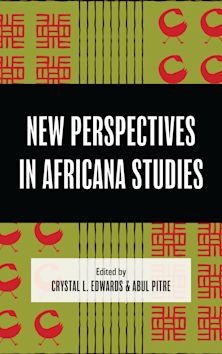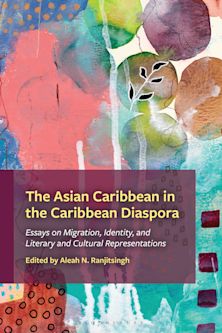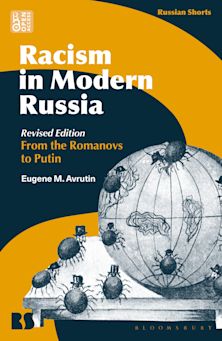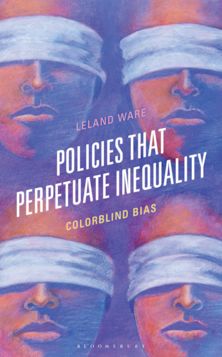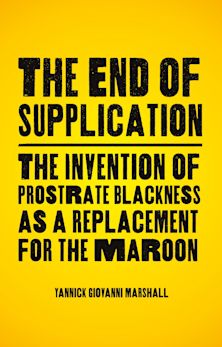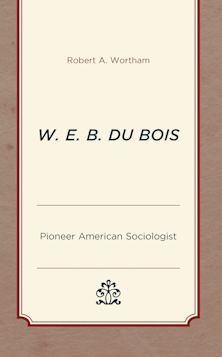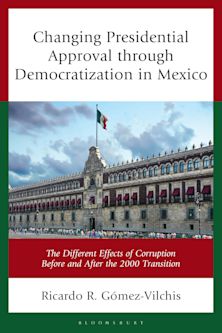- Home
- ACADEMIC
- Politics & International Relations
- Race and Ethnicity
- After Postcolonialism
This product is usually dispatched within 3 days
- Delivery and returns info
-
Free US delivery on orders $35 or over
You must sign in to add this item to your wishlist. Please sign in or create an account
Description
This innovative analysis of the Philippine historical crisis is accompanied by a critique of a U.S. racial formation in which Filipinos constitute the largest Asian group. Literary and artistic expressions by Filipinos manifest a new emerging identity defined by the multicultural debates crossing the Pacific, transforming the Philippines into a borderland of East and West. Caught betwixt the Asian continent and the hegemonic power of the United States, the Philippines occupies a contested space between past and present. Between the memory of colonial experience and an emergent nation-making dream, can a meaningful future be envisioned? This provocative book explores this problematic zone of difference through a critique of the Western production of knowledge in the context of local resistance. While Americanization of the Filipino continues, the encounter of globalizing and nationalizing forces has precipitated a profound political and social crisis whose outcome may be a paradigmatic lesson for many so-called third world countries. What happens in this Southeast Asian nation may foretell the fate of the ideals of democracy and social justice now beleaguered by the market and the unrelenting commodification of everyday life.
Table of Contents
Chapter 2 Symbolic Trajectories of the Asian Diaspora
Chapter 3 Historicizing the Space of Asian America
Chapter 4 Specters of United States Imperialism
Chapter 5 From Neocolonial Representations to National-Democratic Allegory
Chapter 6 Displacing Borders of Misrecognition: On Jessica Hagedorn's Fictions
Chapter 7 Kidlat Tahimik's Cinema of the Naïve Subaltern
Chapter 8 Prospects and Problems of Revolutionary Transformation
Chapter 9 Afterword
Chapter 10 Appendix: Writing and the Asian Diaspora
Product details
| Published | May 24 2000 |
|---|---|
| Format | Paperback |
| Edition | 1st |
| Extent | 272 |
| ISBN | 9780847698615 |
| Imprint | Rowman & Littlefield Publishers |
| Dimensions | 9 x 6 inches |
| Series | Pacific Formations: Global Relations in Asian and Pacific Perspectives |
| Publisher | Bloomsbury Publishing |
About the contributors
Reviews
-
With his usual hardhitting candor and penetrating insight, E. San Juan, Jr., invites readers to join him in a post-postcolonial interrogation of the Philippine 'problematique' within the context of both American imperialism studies and Asian American studies. To be sure, The Filipino in the United States is a concrete historical phenomenon, but becoming Filipino in the Diaspora continues to be a process of dialectical struggle.
Evelyn Hu-DeHart, University of Colorado at Boulder
-
This is a great book, full of life and passion, conviction and commitment-all built upon a bedrock of solid literary, cultural, historical, and political analysis. This will be regarded, I believe, as possibly his very best work.
Paul Wong, University of Michigan
-
This collection is an indispensable part of Philippine studies.
Multicultural Review
-
In one of the most thoroug, hard-hitting, perspicacious analyses on the subject, San Juan dismantels the myths surrounding US-Philippine relations and lays bare the harsh realities US imperialism has wrought on its former "showcase of democracy".
Against the Current
-
In this trenchant survey of both the historyand contemporary status of relations between the Philippines and the United States, E. San Juan…display[s] his talent for provocative analysis.
Pilipinas
-
It is critical to lay bare the reality of the Diaspora experience through the prism of those who have the skills to articulate it. San Juan gives this expression throughout with a powerful critique of Eurocentric universalism and the myths of multiculturalism. He has provided a provocative analysis of how the fashionable liberal vocabulary of transnationalism has obfuscated what in reality are modes of domination. San Juan's optic is unique, placing him alone at the cutting edge of a progressive counter attack against the orthodoxy of the academy.
Sam Noumoff, McGill University












